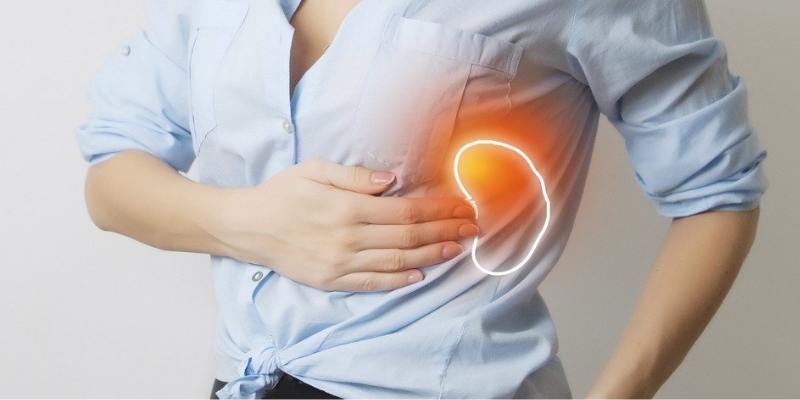What Are the Causes of Acute Respiratory Failure and How Can It Be Managed?
Coffee ground vomitus is a medical condition in which one's vomit may look dark, resembling coffee grounds. Such vomit typically results from partially digested blood due to bleeding in the upper GI tract. Coffee ground vomiting typically indicates an underlying severe disease and thus requires immediate medical consultation. A comprehensive overview of this causative disease is essential for proper diagnoses and treatment. This article explores the causative factors of coffee ground vomitus, its symptoms, and how it could be diagnosed and treated.
What is Coffee Ground Vomitus?
Coffee ground vomitus has been described as vomit with a dark, granular aspect closely resembling ground coffee. It occurs when blood in the stomach mixes with gastric acid and partially digests. The action of gastric acid brings about a chemical change in the blood, which turns it brown or dark, producing the characteristic color. It is a sign that bleeding has occurred in the upper GI tract of the patient: the stomach, the esophagus, and the first portion of the small intestine because coffee ground vomitus results. Therefore, this requires urgent medical attention since it indicates a serious condition.

Peptic Sores: A Common Cause of Coffee Ground Vomitus
Peptic sores are open sores that develop within the stomach lining or the small intestine's upper part. Peptic ulcers can be one of the common causes of coffee ground vomitus. The ulcers bleed, and the blood mixes with stomach acid, giving the coffee ground appearance. Peptic ulcers are caused by impurities with bacteria or long-term use of nonsteroidal anti-inflammatory drugs like aspirin or ibuprofen. Symptoms of peptic ulcers include stomach pain, bloating, and nausea. If you have symptoms like these together with coffee ground vomitus, you should find medical care because the proper evaluation and treatment are needed.
Gastritis and GI Bleeding
One of the leading causes of coffee ground vomit is gastritis, which is a condition of stomach lining inflammation. It can occur due to different reasons, like stress, infection, or long-lasting use of various medications. The stomach lining may be inflamed and irritated, bleeding and forming coffee-ground vomitus. In addition to bleeding into the stomach, gastritis might also cause symptoms of discomfort, nausea, and vomiting. Untreated, it may cause heavier bleeding and other complications. A doctor may prescribe medications, for example, PPIs and antibiotics, to treat the cause and prevent subsequent bleeding.
Esophageal Varices and Portal Hypertension
Esophageal varices are dilated veins in the esophagus and may cause coffee-ground vomitus. These varices usually develop in patients with liver cirrhosis or other diseases of the liver that cause portal hypertension and increased blood pressure in the portal vein. Bleeding from these varices can be very severe, and when it occurs, the blood mixes with stomach acid, resulting in the characteristic coffee ground vomitus. This condition is often accompanied by other symptoms such as fatigue, jaundice (yellowing of the skin and eyes), and abdominal swelling. A bleeding esophageal varix left untreated can be fatal and necessitates urgent medical attention.
Mallory-Weiss Tear
Mallory-Weiss tear is a tear in the esophagus's lining that arises from severe vomiting or retching. This tear can cause bleeding, which can lead to coffee ground vomitus. Mallory-Weiss tears are commonly associated with alcoholism, forceful coughing, and severe vomiting because of an illness. Bleeding from a Mallory-Weiss tear usually stops on its own but can lead to significant blood loss in other cases and must be addressed through medical interventions. If you repeatedly vomit together with coffee ground vomitus, then you have to see your doctor for accurate diagnosis and effective treatment.
Gastroesophageal Reflux Disease
Gastroesophageal reflux disease is a long-term condition involving the more frequent acid flow from the stomach into the esophagus, causing erosion and irritation in the esophagus lining. In the worst cases, GERD has been known to cause bleeding on the esophageal lining, leading to coffee ground vomitus. People with acute or untreated GERD may feel more frequent bouts of acid reflux, which are known to corrode the inside lining of the esophagus and cause bleeds. The clinical manifestations of GERD include heartburn, regurgitation, dysphagia, and chest pains. Treatment with GERD mainly involves lifestyle adjustment, medications using proton pump inhibitors, and even surgery in the worst cases.

Cancer of the Gastrointestinal Tract
In rare instances, gastrointestinal cancers cause coffee ground emesis. Cancers such as stomach cancer es, esophageal cancer, or any cancer located within the upper parts of the small intestine may provoke bleeding within the digestive tract; this may bring about the classical appearance of vomiting. In most cases, those whose coffee ground vomiting is caused by cancer-related conditions experience involuntary weight loss and unexplained aches or pains, difficulties with swallowing, or changes in their bowel habits. Early detection and treatment of gastrointestinal cancers are essential to improve the possibility of successful treatment. If you have a history of gastrointestinal problems and experience coffee ground vomitus, you should see a healthcare provider for further assessment.
Coagulation Disorders and Medications
Coagulation disorders refer to an inability of blood to clot properly. This increases the risk of bleeding in the digestive tract. Other medications involved in gastrointestinal bleeding include anticoagulants, or "blood thinners," and antiplatelet drugs. Patients on any of these can bleed more readily from minor disturbances or injuries that may occur inside the GI tract. When these minor irritations cause bleeding in the GI tract, it becomes apparent as the coffee-ground nature of the vomiting. If you are on blood-thinning medications and start showing signs of bleeding, including coffee-ground vomitus, then you should immediately contact your healthcare provider to change your treatment plan.
Conclusion
Coffee ground vomitus is a sign of bleeding in the upper gastrointestinal tract. It can be caused by various conditions, ranging from peptic ulcers and gastritis to more severe issues like esophageal varices or cancer. Regardless of the cause, coffee ground vomitus always warrants immediate attention, and the diagnosis of the underlying problem is the starting point for treatment. Seek immediate care from a healthcare provider if you or someone around you experiences coffee ground vomitus.












